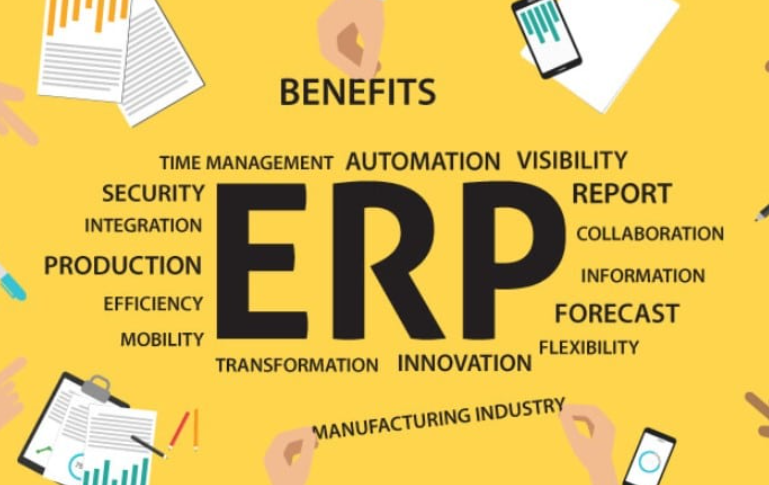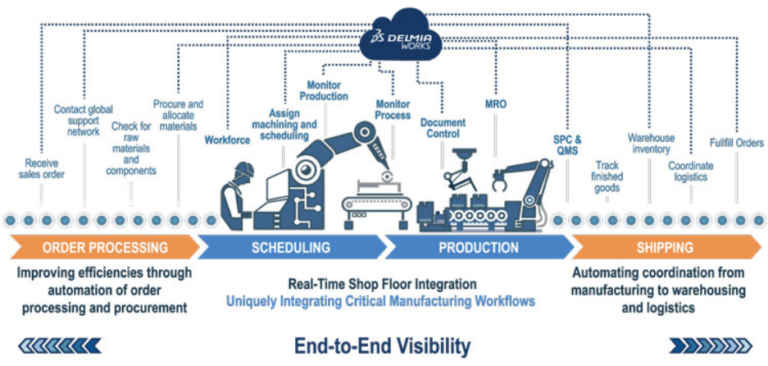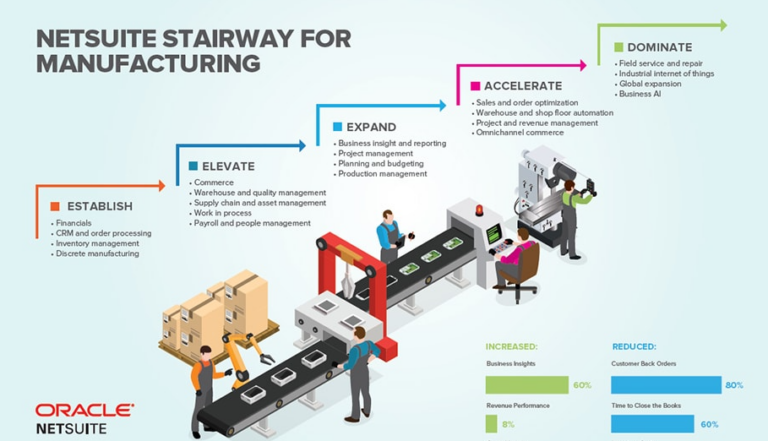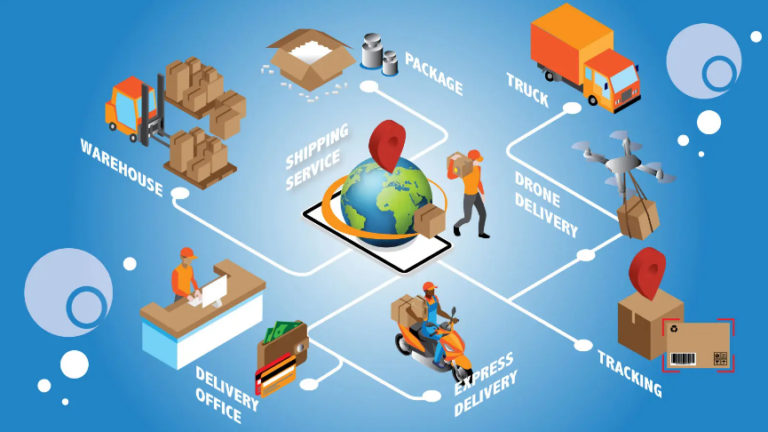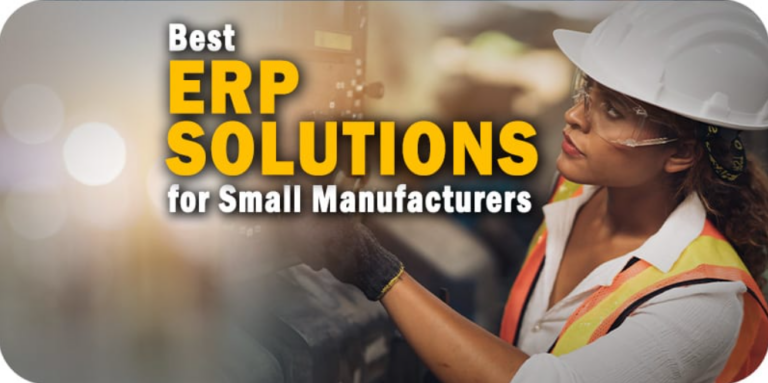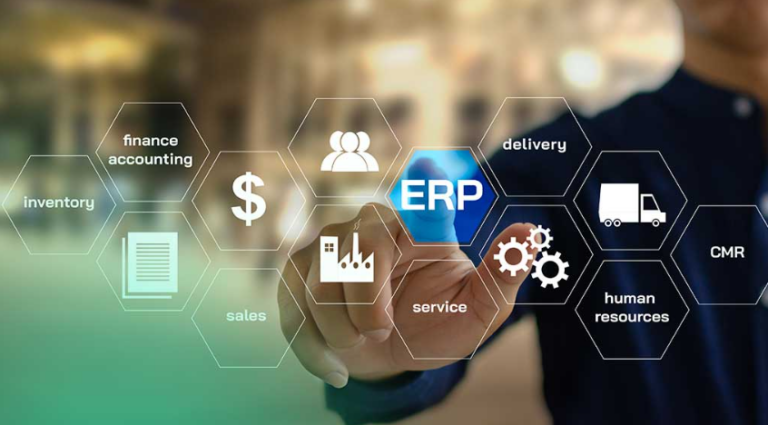When it comes to managing a manufacturing business efficiently, implementing the right ERP (Enterprise Resource Planning) system is crucial. With the ability to streamline operations, integrate various departments, and improve decision-making, ERP solutions can dramatically transform manufacturing processes. In this article, we’ll explore the top ERP systems for manufacturing, their key features, benefits, and how to choose the right solution for your business.
What is ERP for Manufacturing?
Insert image of ERP software dashboard.
ERP for manufacturing refers to software systems that integrate all aspects of a manufacturing business, from production to supply chain, finance, human resources, and inventory management. It helps manufacturers automate and optimize their operations, providing better visibility into their workflows and improving overall efficiency.
With a good ERP system, manufacturers can reduce waste, lower operational costs, and meet customer demand more efficiently. Whether you’re a small business or a large enterprise, implementing ERP can help you stay competitive in a fast-paced manufacturing environment.
Why Do Manufacturers Need ERP?
Insert image of factory workflow using ERP.
Manufacturers face complex challenges such as demand fluctuations, supply chain disruptions, compliance requirements, and cost pressures. An ERP system addresses these challenges by providing an integrated platform to manage all business functions from a single system. It enables:
- Improved Productivity: Automating manual tasks and integrating departments leads to faster decision-making and fewer errors.
- Real-time Insights: ERP systems provide real-time data on inventory, production, and finances, helping managers make data-driven decisions.
- Regulatory Compliance: ERP systems assist manufacturers in staying compliant with industry regulations, reducing the risk of penalties.
- Cost Savings: By optimizing resource allocation and improving efficiency, ERP helps manufacturers reduce operational costs.
Top ERP Systems for Manufacturing
1. SAP S/4HANA
Insert image of SAP S/4HANA dashboard.
SAP S/4HANA is a leading ERP solution designed for large-scale manufacturers. It offers powerful features such as advanced analytics, integrated supply chain management, and real-time reporting.
- Pros: High scalability, advanced AI-powered analytics, real-time data processing.
- Cons: Expensive, complex implementation.
- Price: Starts at $3,500 per user, per year.
- Features: Integrated supply chain management, AI-powered analytics, cloud and on-premise deployment.
- Use Case: Ideal for large manufacturers with complex supply chains who need real-time data processing.
<a href=”https://www.sap.com/products/s4hana.html”>Buy SAP S/4HANA</a>
2. Oracle NetSuite
Insert image of Oracle NetSuite interface.
Oracle NetSuite is a cloud-based ERP system that offers robust features for manufacturers of all sizes. With modules for production management, supply chain, and financials, it provides a complete suite to manage manufacturing operations.
- Pros: Cloud-based, easy to implement, scalable for growing businesses.
- Cons: Limited customization, high annual costs.
- Price: Starts at $999 per month.
- Features: Cloud deployment, real-time analytics, integrated financials and production.
- Use Case: Best suited for mid-sized manufacturers looking for a scalable, easy-to-deploy ERP solution.
<a href=”https://www.netsuite.com/portal/products/erp.shtml”>Buy Oracle NetSuite</a>
3. Microsoft Dynamics 365
Insert image of Microsoft Dynamics 365 dashboard.
Microsoft Dynamics 365 is a versatile ERP solution that integrates CRM (Customer Relationship Management) and ERP functionalities, making it ideal for manufacturers looking to enhance customer service while optimizing production.
- Pros: Strong integration with other Microsoft products, flexible deployment.
- Cons: Can be overwhelming for small businesses, steep learning curve.
- Price: Starts at $190 per user, per month.
- Features: CRM integration, AI-powered insights, customizable modules.
- Use Case: Perfect for manufacturers looking for both ERP and CRM capabilities in one system.
<a href=”https://dynamics.microsoft.com/en-us/”>Buy Microsoft Dynamics 365</a>
4. Infor CloudSuite Industrial (SyteLine)
Insert image of Infor CloudSuite dashboard.
Infor CloudSuite Industrial, also known as SyteLine, is a comprehensive ERP system specifically designed for manufacturers. It provides industry-specific functionality, including production planning, scheduling, and quality management.
- Pros: Tailored for manufacturing industries, excellent for discrete and process manufacturers.
- Cons: Limited customization options for non-manufacturing features, high initial setup cost.
- Price: Starts at $150 per user, per month.
- Features: Industry-specific functionalities, cloud-based, advanced scheduling tools.
- Use Case: Best for manufacturers who need industry-specific ERP capabilities and advanced scheduling tools.
<a href=”https://www.infor.com/products/cloudsuite-industrial”>Buy Infor CloudSuite</a>
5. Epicor ERP
Insert image of Epicor ERP interface.
Epicor ERP is a flexible solution for manufacturers of all sizes, offering comprehensive features like supply chain management, production control, and human capital management. It is known for its flexibility in deployment and customization.
- Pros: Highly customizable, flexible deployment options, strong manufacturing focus.
- Cons: Can be expensive, requires significant training.
- Price: Starts at $175 per user, per month.
- Features: Customizable workflows, cloud and on-premise options, robust reporting tools.
- Use Case: Ideal for manufacturers needing a flexible, customizable ERP system.
<a href=”https://www.epicor.com/en-us/solutions/epicor-erp/”>Buy Epicor ERP</a>
Benefits of Using ERP for Manufacturing
ERP systems offer numerous benefits to manufacturing businesses, regardless of size. Some key benefits include:
- Enhanced Operational Efficiency: ERP systems streamline workflows by automating routine tasks, reducing errors, and integrating all aspects of a manufacturing operation.
- Real-time Data Access: With real-time access to critical data such as inventory levels, production status, and financial metrics, decision-makers can make more informed, data-driven choices.
- Improved Collaboration: By integrating departments, ERP fosters better communication and collaboration between teams.
- Cost Control: ERP systems help manufacturers reduce wastage, optimize resource usage, and cut operational costs.
Comparison of ERP Systems for Manufacturing
When choosing an ERP system, it’s important to compare them based on several factors, including ease of use, scalability, features, and pricing.
- SAP S/4HANA is ideal for large enterprises needing advanced analytics and real-time data processing but comes with a high price tag.
- Oracle NetSuite offers an affordable, cloud-based solution for mid-sized manufacturers but lacks customization.
- Microsoft Dynamics 365 provides strong integration with Microsoft products and a CRM-ERP combo but may be too complex for smaller businesses.
- Infor CloudSuite Industrial is perfect for industry-specific manufacturing needs, offering advanced scheduling and production planning.
- Epicor ERP stands out for its customizability and flexibility, making it ideal for manufacturers with unique needs.
How to Buy an ERP System for Manufacturing
When purchasing an ERP system for your manufacturing business, it’s essential to consider the following factors:
- Identify Your Needs: List the functionalities your business requires, such as production management, supply chain integration, or financial reporting.
- Evaluate Options: Compare different ERP systems based on features, scalability, and pricing.
- Check for Vendor Support: Ensure the ERP provider offers adequate support and training during implementation.
- Get a Demo: Always request a demo of the ERP software to understand how it functions in a real-world scenario.
To purchase any of the ERP systems mentioned in this article, visit the vendor’s website, request a demo, or get in touch with their sales teams through the links provided.
FAQs
1. What is the best ERP system for a small manufacturing business?
For small manufacturers, Oracle NetSuite and Epicor ERP are excellent options due to their scalability and ease of deployment.
2. Can an ERP system be customized to fit specific manufacturing needs?
Yes, most ERP systems like Epicor ERP and SAP S/4HANA offer customizability to meet the specific needs of manufacturers.
3. How much does an ERP system cost?
ERP systems can range from $150 to $3,500 per user, per month, depending on the vendor, features, and level of customization required.
